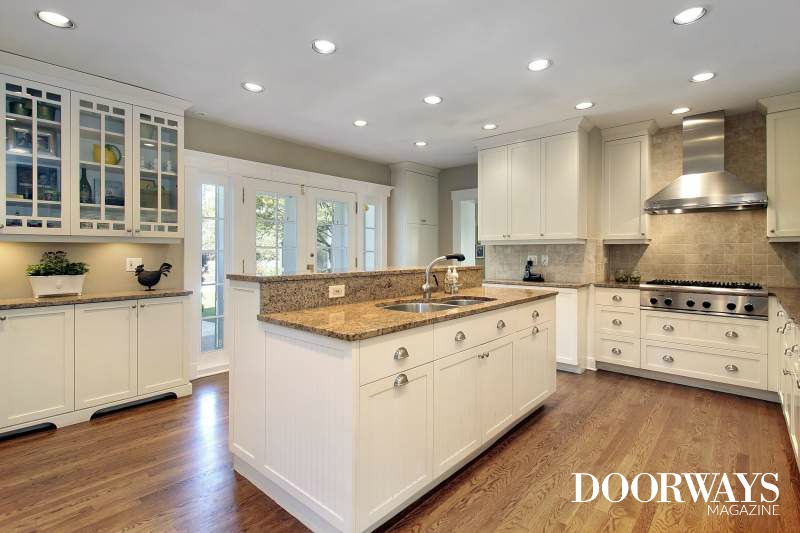Sun, Nov 25, 2018
Article may contain affiliate links. As an Amazon Associate I earn from qualifying purchases.

In this article we compare two common and traditional types of wood flooring: bamboo vs hardwood.
While they are fairly similar in their properties, they do have slightly different pros and cons.
When it comes to installing new flooring your home, the use of the right material is essential. You will need something that looks great, is easy to maintain, long-lasting, and that fits into your budget.
Natural bamboo flooring is considered to be an extremely elegant addition to any home, and hardwood floors have been viewed as highly attractive and durable for decades. Here are the more intricate details of these two types of flooring.
Bamboo Flooring Pros and Cons
Bamboo is a plant that grows quickly, reaching maturity in just three to five years, and is therefore an ecologically friendly choice for flooring because it can be more easily replenished. A bamboo floor is easily swept or vacuumed, or occasionally it can be cleaned with a damp mop or bamboo floor cleanser.
It is fairly water resistant, but you should try not to expose it to prolonged moisture, as it will warp or begin to mold. Bamboo flooring of a good quality is durable, and adds appeal to any room.
Its appearance is often similar to hardwood, but with a touch of elegance. Bamboo floors can end up with scratches over time, or discoloration, and will therefore need to be refinished. They should also only be installed in areas where the humidity (or even the dryness of the environment) is not of a degree that will cause them damage.
Hardwood Flooring Pros and Cons
Hardwood flooring can be described as extremely durable, versatile, easy to maintain and valuable. A home with a hardwood floor is considered as a greater asset than a home with carpets or synthetic flooring.
Several hardwood varieties are available, and they can be stained in different colors to suit the home’s look. They work well with a traditional or modern theme, and are easy to clean.
Refinishing may be required from time to time in order to restore their original beauty, and to take out any scratches. Besides the fact they can scratch quite easily, their only disadvantage is their noise-factor. You certainly won’t be able to creep up on anyone whilst wearing high heels! Hardwood floors in upper apartments can therefore be a problem for those on the lower levels.
Cost Comparison: Hardwood vs Bamboo Prices
The prices of bamboo and hardwood flooring are very similar, both between $2 and $12 per square foot (not including installation and trim). The quality of the wood you purchase will affect the overall price. Keep in mind that you may still need to have the wood finished in order for it to become the desirable flooring you wish to place in your home.
Be especially careful when buying bamboo, as there is no definite grading system for this type of material. A reputable dealer should therefore be consulted before spending any money. Both hardwood and bamboo floors are fairly big installation jobs that will cost more than synthetic flooring.
Conclusion
Since hardwood and bamboo are so similar, it is best to obtain the advice of an expert when deciding which one will be most suitable for your home. While bamboo is slightly more water resistant than hardwood, hardwood is often considered as the more durable of the two.
Both floor varieties are extremely attractive and add considerable value to a home, apartment or office, and are well worth the effort of installation if they can be afforded.
READ NEXT
